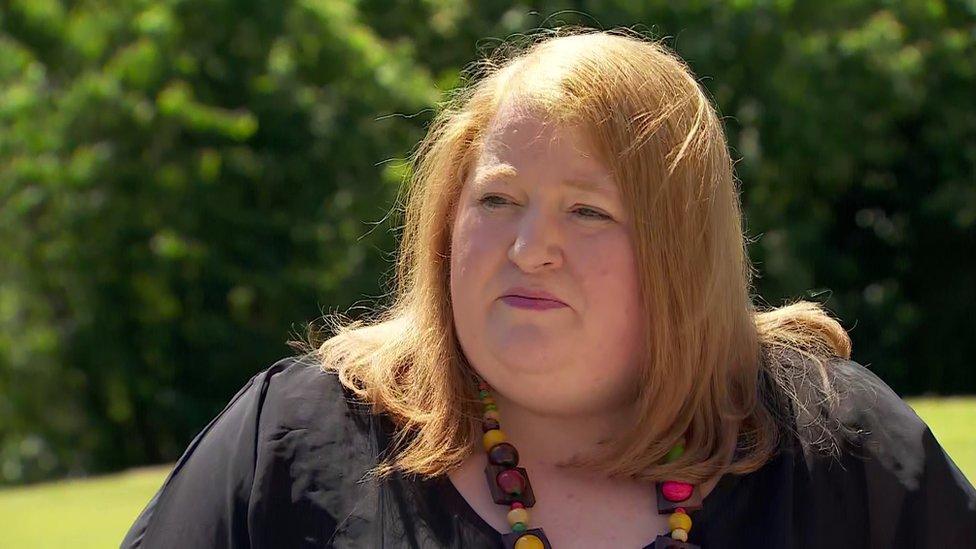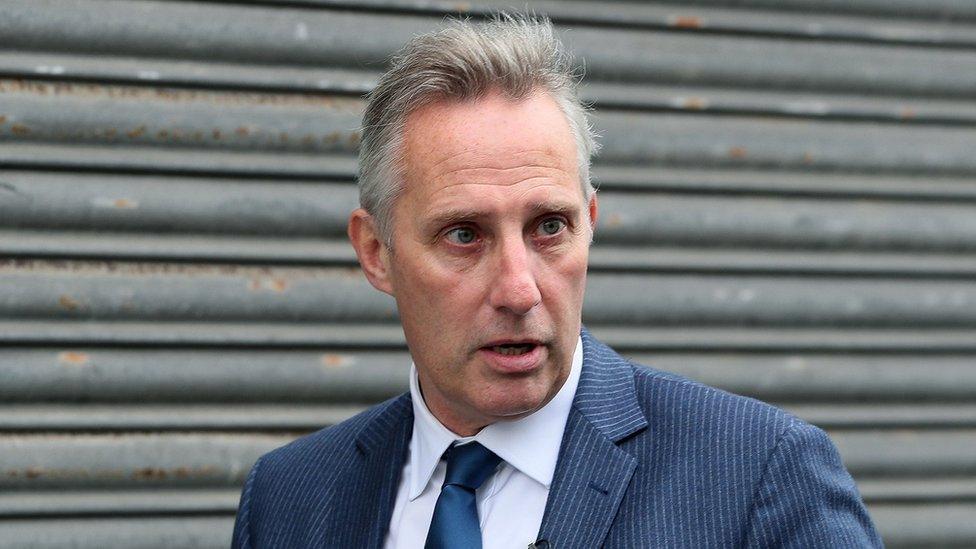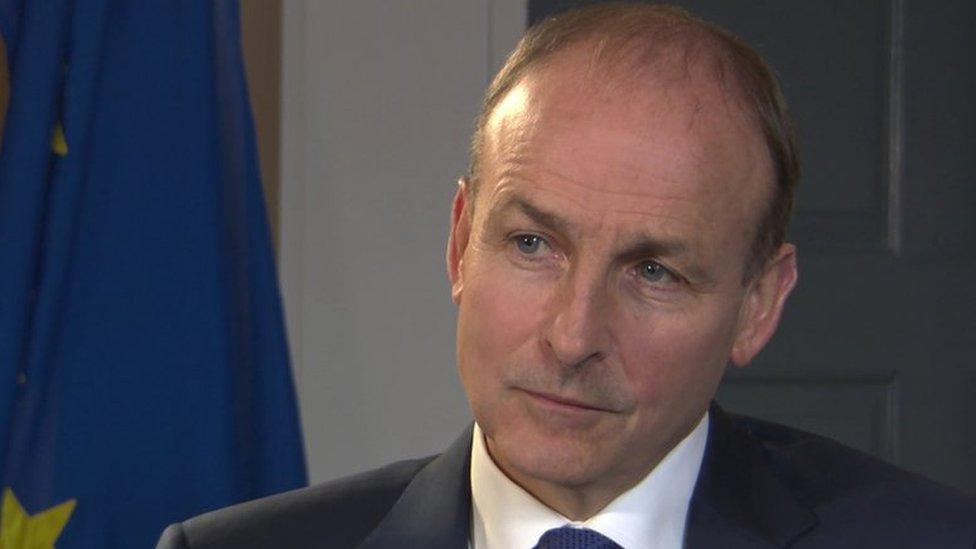Stormont deadlock: DUP 'in denial about financial situation'
- Published
- comments
'Some parties do not get' budgetary issues, says Conor Murphy
The Democratic Unionist Party (DUP) is "in denial" about the financial situation facing Northern Ireland if an executive is not formed, the finance minister has said.
He was speaking after the head of the civil service met executive parties.
Conor Murphy warned departments could face having to stop some public services, if the situation continued.
The DUP's Paul Givan said it remained up to the government to resolve problems over the NI Protocol.
The meetings come as Northern Ireland's political standoff continues. Sinn Féin won the most seats in last month's election, but the DUP, which came second, is refusing to re-enter a power-sharing executive until the party's concern about the Northern Ireland Protocol have been addressed.
The trade deal governs how goods enter Northern Ireland from the rest of the UK and was agreed by the UK government and the European Union following the Brexit vote in 2019.
It was designed to prevent a hard border on the island of Ireland when the UK left the European Union.
Mr Givan said the protocol was the "elephant in the room" during talks between political leaders.
"We need to see legislation taken through Westminster to remove the Irish Sea border - the barrier that's creating this executive from being able to form," he said.
"Then we can make progress and hit the ground running and deliver for the issues that matter to people."
Mr Murphy said his department was in discussions with the Treasury about distributing a £400-per-household grant.
'The protocol is the elephant in the room' for executive return
"All the ministers who are there want to be in a position where we can make interventions to try and assist people where the pressures arise so quickly.
"We can't do anything with that £437m," he added.
'Crisis in autumn'
Mr Murphy said the lack of a new budget means departments are limited to take on new projects and to allocate money between departments to help where there are "significant pressures".
Alliance leader Naomi Long said the financial situation looked "dire" with no flexibility for departments without an executive.

Alliance leader Naomi Long warned that Stormont was hurtling towards a "series of crises" in the autumn
She warned that Stormont was hurtling towards a "series of crises" in the autumn regarding finances with some departments potentially overspending.
The discussions at Stormont Castle were also exploring priorities for a future programme for government when the executive is fully restored.


Northern Ireland's executive parties have been told that Stormont's budget is facing spending pressures of £1.5bn.
Pressures refers to a situation in which demand or cost for services is increasing faster than the available budget.
It does not necessarily mean cuts of the same amount, as funds can be reallocated between departments, or planned policies can be delayed.
However, the lack of a fully functioning executive makes that sort of reallocation exercise difficult.
A regular reallocation exercise, known as a monitoring round, which was due to happen this month will not take place.
There is about £400m of funds which have come from Westminster for spending, but which have not yet been allocated due to the current impasse.
The party leaders were told that some of the day-to-day spending pressures relate to 'inescapable' pressures such as rising energy.
The capital or infrastructure budget faces an opposite problem: without an executive to approve major new projects there is the danger of a significant underspend.
Only a small amount of underspent capital funds can be rolled over - most of the money would have to go back to the Treasury.
Public finance rules also generally prevent infrastructure funds being transferred for day-to-day spending.

As part of the process set up by the head of the Northern Ireland Civil Service, Jayne Brady, the executive parties will meet every fortnight.
They will also take part in a series of working groups which will examine employment, green sustainable energy and opportunities for young people.
The SDLP was not invited to the discussions as it no longer sits on the executive.

What is the Northern Ireland Protocol?
The trade deal governs how goods enter Northern Ireland from the rest of the UK and was agreed by the UK government and the European Union following the Brexit vote in 2019.
It was designed to prevent a hard border on the island of Ireland when the UK left the European Union.
The protocol led to the creation of new goods checks at Northern Ireland sea ports on some products from Great Britain, effectively creating a new trade border in the Irish Sea.
Unionist parties, including the Democratic Unionist Party (DUP), argue that this has led to extra costs and unnecessary delays, as well as undermining the union between Northern Ireland and the rest of the UK.
Read more: A simple guide to the Brexit border problem


- Published15 June 2022

- Published19 June 2022
